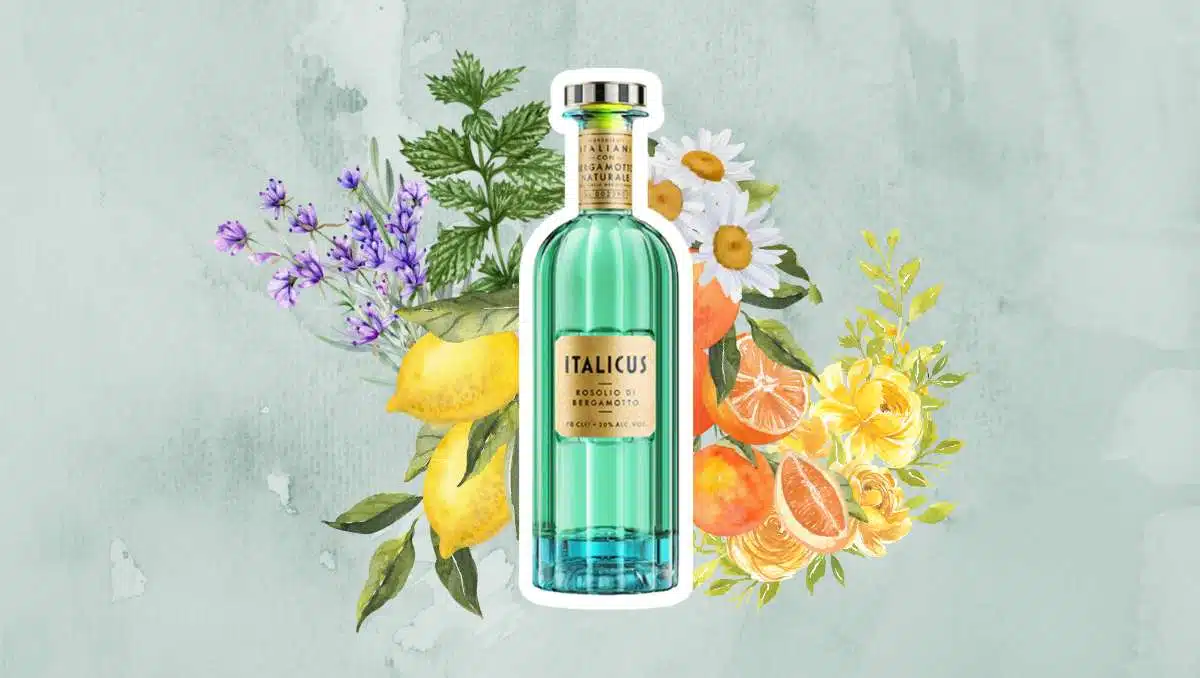The launch of Italicus liqueur was in September 2016 when spirits expert Giuseppe Gallo presented his new creation at the prestigious Savoy Hotel in London. Italicus is a modern version of a traditional rosolio, a traditional Italian liqueur made by macerating flowers, spices, and other ingredients in alcohol, mixing it with water, and sweetening it with sugar. The liqueur contains 20% alcohol and is made with bergamot oranges from Calabrian, citrons (lemons) from Sicily, a mix of flowers and herbs, and sweetened with natural beet sugar.
Inspired by the scenic Amalfi Coast, Gallo created a beautiful bottle design of blue-green color and only used local ingredients from Italy. The result is an exceptional liqueur that works perfectly in aperitivos. It quickly became a favorite of bartenders and mixologists as it brings a unique taste to any drink.
Italicus Rosolio di Bergamotto Liqueur won a variety of awards including prestigious ones like the Best New Spirit award at Tales of the Cocktail in 2017 and a gold medal from the Wine and Spirit Competition in 2018. Tales of the Cocktail is probably the most important yearly event in the bar scene. After bagging this award, it was only a matter of time before Italicus would be a staple in bars around the world.
What is Rosolio?
Rosolio, an ancient Italian liqueur tradition, involves infusing fruit or flower in alcohol combined with water and sugar, reflecting a practice prevalent in bygone eras. Its flavor profile was influenced by the terroirs of production and the assortment of fruits, flowers, and herbs accessible within those regions.
Unlike amaro, which embraces diverse arrays of ingredients and botanicals, rosolio tends to exhibit a more concentrated and singular flavor experience.
The Story of Italicus
The full name of the product is Italicus Rosolio di Bergamotto liqueur. And technically, Italicus is more of a citrus liqueur than a Rosolio because the main ingredient isn't rose petals but Bergamot oranges.
Before Giuseppe Gallo presented his creation in 2016, he worked on the recipe for more than 15 months. He took inspiration from a Rosolio di Torino recipe he discovered in the book Liquorista Pratico. Rosolios are rose liqueurs and have a long tradition in Italy (dating back to the 15th century) and are typically served in aperitivos.
When he first tried the recipe, the result was rather disappointing. However, driven by the idea of bringing back the tradition of Rosolio liqueurs, Gallo created his version of the recipe. In a family-owned distillery in Moncalieri, Torino he worked on the recipe until it was perfect. The result was a light, sweet, and floral citrus liqueur of 20% ABV.
To reflect the origin of the ingredients in Italicus, Gallo used only local ingredients. Furthermore, he decided to design the bottle accordingly. Both shape and color, are inspired by the picturesque Amalfi coast.
Ingredients
The main ingredient of Italicus is Calabrian bergamot oranges, not roses as you might have thought. Those oranges are harvested from a protected area of origin. But you also can't deny the intensely floral aromas and flavors brought into the liqueur by rose petals and other flowers.
The full list of ingredients in Italicus includes:
- Calabrian bergamot oranges
- Cedro or citrons - Lemon like fruits from Sicily
- Yellow rose petals
- Melissa lemon balm
- Roman chamomile
- Lavender
- Gentian root
- Natural beet sugar
To capture the beautiful aromas and flavors of the two citrus fruits, Gallo applies a technique called the sfumatura process. Sfumatura, or slow-folding, is an old technique for extracting essential oils of citrus fruits by hand.
This technique is time and labor-intensive but still achieves the best results. No mechanical processing can match the quality of the resulting oils.
But oil extraction is not the only key to success for Italicus. Because to bring as much flavor as possible into the liqueur, all ingredients need to macerate for ten days. Only after maceration beet sugar and water are added.
Tasting notes
Italicus Rosolio di Bergamotto is a bright and floral citrus liqueur with a unique flavor profile. It has an elegant balance of bitterness and sweetness with a distinct citrus taste and a herbal and floral aroma.
Aroma
Italicus has a delicate floral nose with some herbal notes in the background. You can smell roses and orange blossoms and hints of rosemary.
Taste
On the palate, Italicus is full of citrus flavor, grassy notes, sweetness, and slightly bitter notes from gentian roots. But this does not hide the fact that Italicus is first and foremost a rather sweet liqueur.
Overall the orange taste is less pronounced than one might expect. It still exists but blends perfectly with the other citrus, herbal, and floral notes.
Are there alternatives to Italicus
The flavor profile of Italicus is hard to compare with anything else. And if you want to replace Italicus, you'll have a hard time finding a perfect substitute. Your best bet might be using St. Germain elderflower liqueur.
How to drink it
You can drink Italicus neat, but that's not the way you typically want to enjoy this sweet liqueur. Mostly you will encounter it in cocktails or mixed with another alcoholic ingredient like Prosecco.
Also, on the Italicus bottle, you'll find a suggestion to mix it with chilled Prosecco. The recipe advises using 1 part Italicus for 1 part Prosecco.
Frankly, that's far too sweet for me -and many other people, as well.
Try to use 1 part Italicus per 3 (or even 4) parts Prosecco, and you'll have a much more enjoyable drink. Alternatively, make an Italicus Spritz. This aperitif-style drink is made with 1.5 oz Italicus, 2 ounces of Prosecco, and 1 oz of soda water. Serve the drink in a wine glass with lots of ice and garnish with lemon peel.
You can also combine Italicus with a citrusy IPA (India Pale Ale). For that, you need four parts of beer with one part Italicus and a dash of bitters. The result is a light-bodied, refreshing, and creative aperitif.
Mostly, though, you will find Italicus in cocktail recipes. And that only makes sense as the unusual flavor combination of Italicus makes for some interesting flavor combinations.
Cocktail Recipes
In the past few years, countless riffs on traditional recipes began using Italicus liqueur to bring new flavors into old cocktail recipes.
Many of them play with the Italian heritage by using it in traditional Italian drinks like the Negroni, Spritz, and similar aperitivo cocktails.
Below are four of my favorite drink recipes using Italicus.
Bergamot Negroni
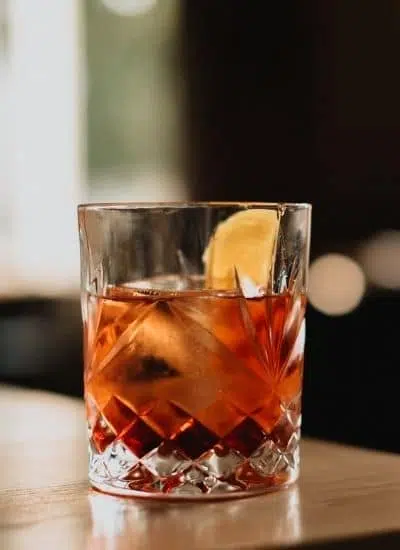
Ingredients
- 1 oz Aged gin
- 0.75 oz Campari
- 0.75 oz Dry Vermouth
- 0.25 oz Italicus
To make this Bergamot Negroni add all ingredients into a mixing glass with plenty of ice and stir until chilled. Then strain over ice into a rocks glass and garnish with a bergamot orange peel.
The mastermind behind this recipe is Naren Young. Young is the creative director of the famed NYC bar Dante and created this drink in 2019 to serve in the aforementioned bar.
Tastewise, this drink is a drier Negroni variation with delicate hints of bergamot oranges. Italicus adds a subtle yet complex depth to the recipe. Easily one of my favorite Italicus cocktails.
Negroni Bianco
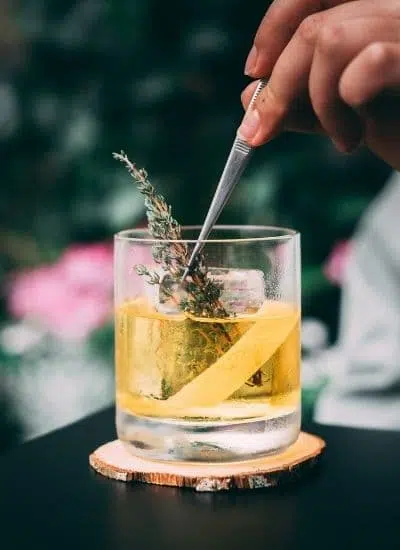
Ingredients
- 1 oz Dry Gin
- 1 oz Italicus
- 1 oz Dry Vermouth
Add all ingredients into a mixing glass with plenty of ice and stir until chilled.
Then strain over ice into a rocks glass before serving.
The Negroni Bianco translates to White Negroni. But the recipe here is a bit different from the original.
The combination is quite dry and offers wine-like minerality. The fresh and citrusy notes of Italicus harmonize perfectly with the botanicals from the Gin.
Olimpo
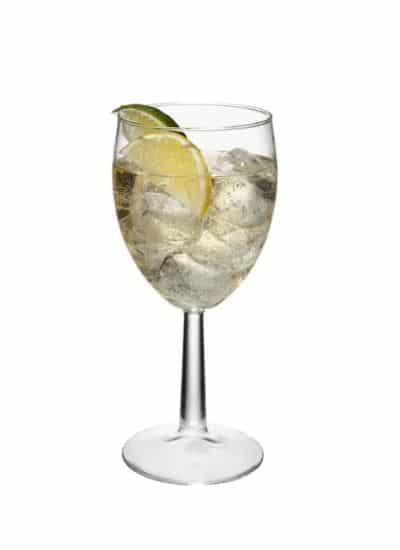
Ingredients
- 1.25 oz Italicus
- 1oz Dry Vermouth
- 1 Dash Rhubarb bitters
Add Italicus and Dry Vermouth into a mixing glass with ice and stir until well-chilled. After that, strain it into an ice-filled glass wine glass.
That is a superbly light and refreshing aperitivo cocktail. First served at Paradiso bar in Barcelona, the Olimpo is a prime example of the sophisticated aperitifs you can make with Italicus Rosolio di Bergamotto
Italicus Margarita (Margariticus)
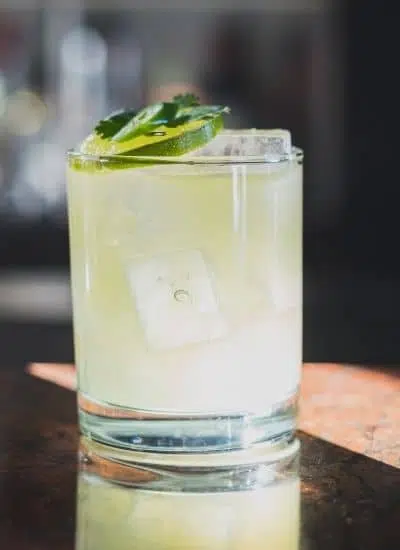
Ingredients
- 2 oz Mezcal
- 1 oz Italicus
- 1 oz Lime juice
Add all ingredients into a cocktail shaker filled with ice and shake until well-chilled.
Strain into a chilled coupe glass rimmed with fleur de sel.
The Margariticus is another example of the versatility of the liqueur. The combination of smoky Mezcal and sweet and floral Italicus works as a treat.
If the taste is too tart for you, try adding a bit of simple syrup or agave nectar to the recipe.
How is Italicus made?
Creating Italicus Rosolio di Bergamotto is an intricate process rooted in history, based on a 120-year-old recipe. Here's how it's done:
- Extract of Turin: Macerate roman chamomile, lavender, yellow roses, Melissa balm, gentian root, and bergamot peels in a tank with neutral grain spirit and water – the result is called estratto di Turin - or extract of Turin.
- Citrus Infusion: Bergamotte and cedro zest undergo a separate cold water infusion for 24 hours, releasing essential oils through sfumatura, yielding two extracts – estratto di Calabria for bergamot and estratto di Sicilia for cedro.
- Aromatic Symphony: These three extracts are harmoniously blended, creating the distinctive Italicus aroma and flavor.
- Filtration: The liquid undergoes meticulous filtration, refining its essence.
- Resting: The blend rests in temperature-controlled tanks.
- Adding sugar & water: Unrefined beet sugar and demineralized water are added to achieve a 20% ABV.

